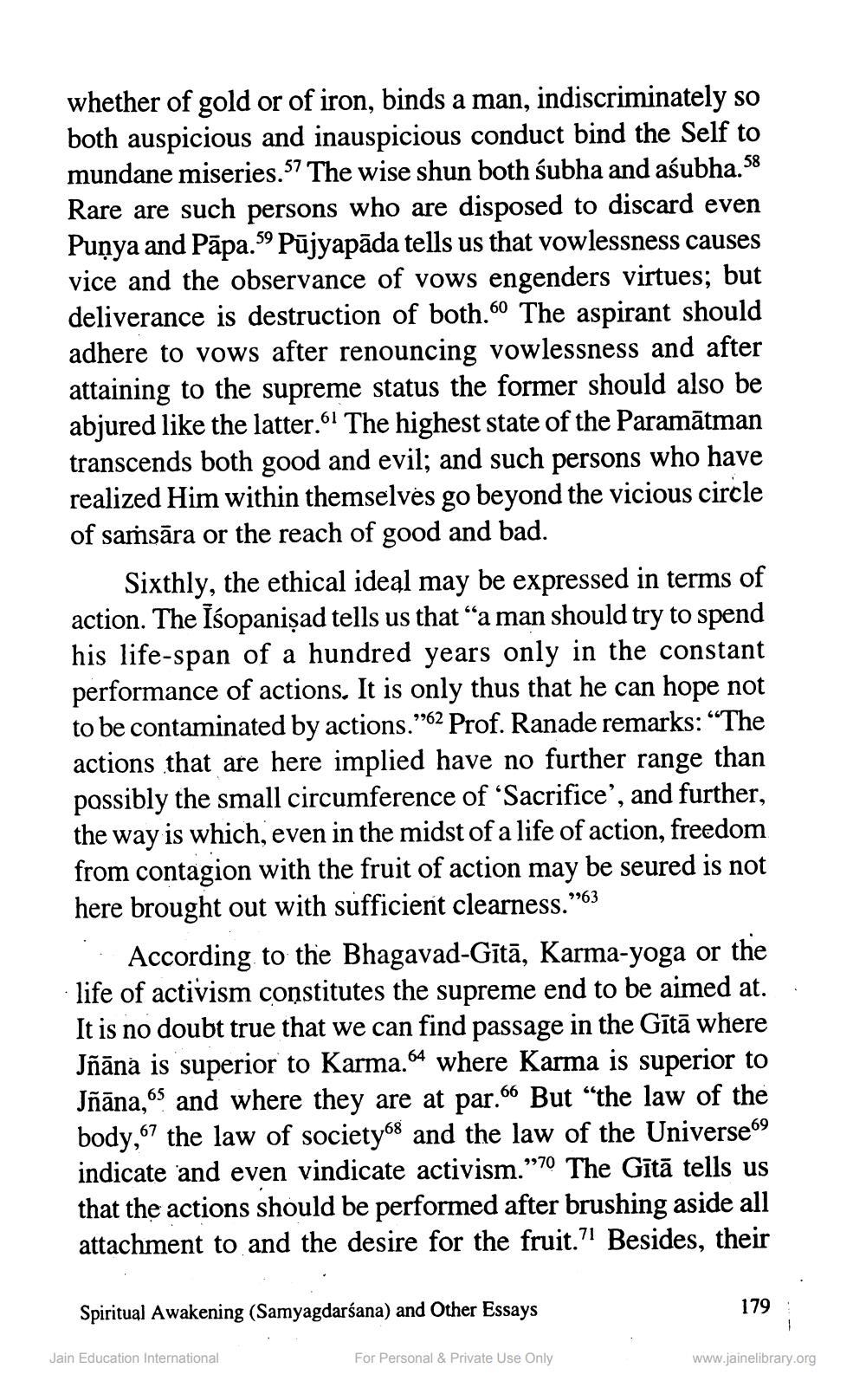________________
whether of gold or of iron, binds a man, indiscriminately so both auspicious and inauspicious conduct bind the Self to mundane miseries. The wise shun both śubha and aśubha.58 Rare are such persons who are disposed to discard even Punya and Pāpa.59 Pūjyapāda tells us that vowlessness causes vice and the observance of vows engenders virtues; but deliverance is destruction of both.60 The aspirant should adhere to vows after renouncing vowlessness and after attaining to the supreme status the former should also be abjured like the latter. The highest state of the Paramātman transcends both good and evil; and such persons who have realized Him within themselves go beyond the vicious circle of saṁsāra or the reach of good and bad.
Sixthly, the ethical ideal may be expressed in terms of action. The Isopanişad tells us that “a man should try to spend his life-span of a hundred years only in the constant performance of actions. It is only thus that he can hope not to be contaminated by actions.”62 Prof. Ranade remarks: “The actions that are here implied have no further range than possibly the small circumference of 'Sacrifice', and further, the way is which, even in the midst of a life of action, freedom from contagion with the fruit of action may be seured is not here brought out with sufficient clearness.”63
According to the Bhagavad-Gītā, Karma-yoga or the life of activism constitutes the supreme end to be aimed at. It is no doubt true that we can find passage in the Gītā where Uñāna is superior to Karma. 64 where Karma is superior to Uñāna, and where they are at par.66 But “the law of the body,67 the law of societyøs and the law of the Universe69 indicate and even vindicate activism.”70 The Gītā tells us that the actions should be performed after brushing aside all attachment to and the desire for the fruit." Besides, their
Spiritual Awakening (Samyagdarśana) and Other Essays
179
Jain Education International
For Personal & Private Use Only
www.jainelibrary.org




